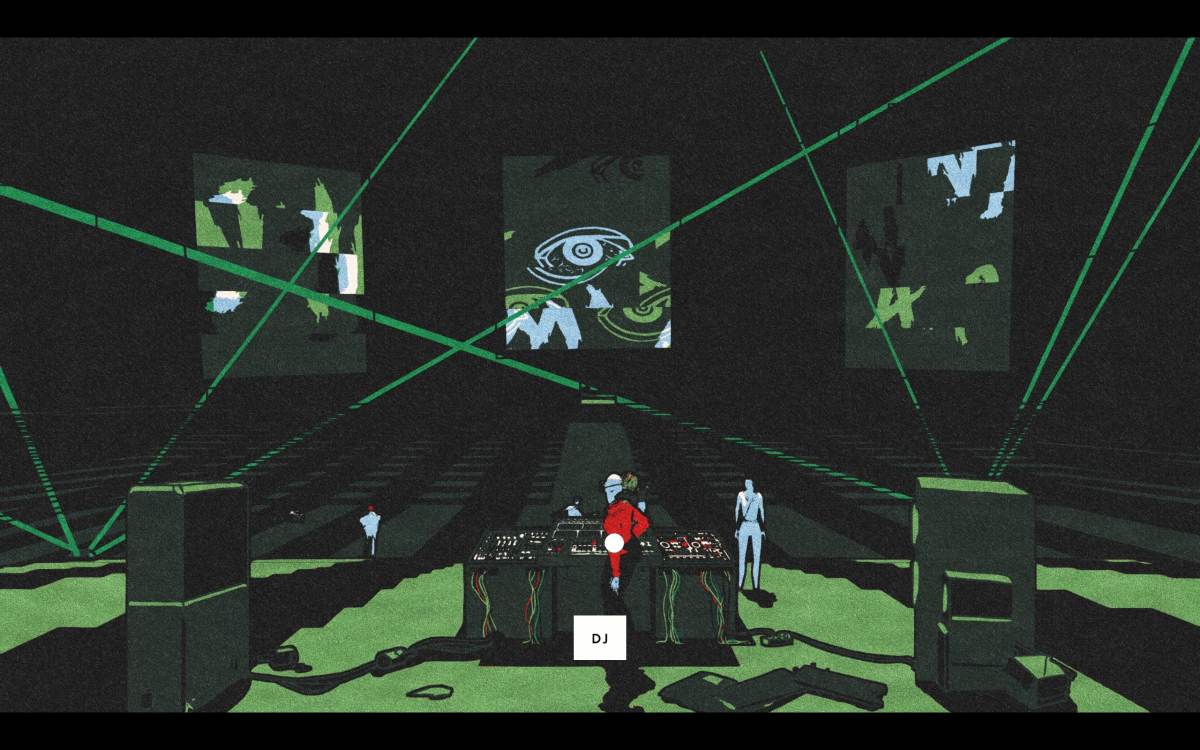The moment I finished Phoenix Springs, I started playing it again from the beginning. This enigmatic and beautiful point-and-click adventure game had confounded and enchanted me, and as the credits rolled I realised that this was a game that I would need to study and interpret.
After a second playthrough, I can happily say that I have let go of the notion of finding perfect closure to the questions the game had raised for me, even if my understanding had deepened somewhat. I’m happy for Phoenix Springs to be a beautiful, haunting enigma.
Here’s what I can say for sure about the game’s plot. Iris, the game’s playable protagonist, is searching for her brother, Leo, from whom she seems to be long-estranged. After waking on what turns out to be a facsimile of a train at the game’s beginning, Iris – a journalist by training – begins following a trail of clues to find him. But her search, it turns out, is not really for her brother after all – she’s seeking something deeper and darker, a strange secret found at the heart of a desert oasis called Phoenix Springs.
Read: Future of Play Direct 2024 – Every major game announcement

The game makes a few tweaks to the standard point-and-click formula. Instead of an inventory, Iris has an evolving word cloud of terms that can be used in conversations or against objects. Using a name from your list on a book might prompt Iris to check the glossary for any mention of them, for example, and in some sections of the game you’ll need to question multiple people about a piece of information you’ve uncovered.
It’s a simple system, used in a few sophisticated ways throughout the game. Progressing forward really is a matter of sorting your “thoughts” – most of the puzzles will present you with red herrings and irrelevant data, and figuring out the key terms and areas to focus on feels true to Iris’ profession as a journalist.
Phoenix Springs is unsettlingly beautiful
Phoenix Springs is absolutely gorgeous. All of the art is hand-drawn and animated, which is a wild thing to consider as you play. You can just about smell the thick marker pens in each image, and the game has a real “every frame is a work of art” vibe to it. I was constantly hitting F12 to capture screenshots because the landscapes and images that the game conjures are so striking. It’s one of those “wow, games can look like this now?” games, perfectly realising a unique and glorious visual style.
The gorgeous art and clever progression system are all in service of the game’s narrative, which is obtuse in a kind of beautiful, frightening way. I’m not sure if I’d call Phoenix Springs a horror game, but it’s certainly in the ballpark; it regularly seeks to unsettle the power in its story, its soundtrack, its imagery, and even in the solutions to its puzzles.

There’s a difficult tightrope being effectively walked here – I always knew my next objective, even if I was often unsure of what I was working towards, or whether Iris was – through my actions – making good decisions. The game takes about three hours to finish, but it feels taut rather than short, like it has to end to break the tension.
The game has some of the fiddliness you might expect of an ambitious, arty game made by a tiny team, too. The double click to run command is inconsistent, UI elements occasionally get cut off by the edge of the screen, and the sound mix can obscure dialogue if you don’t play with the default settings. Some of the puzzle solutions border on obscure or feel pedantic in the specificity they require.
The game is challenging, but there’s only a few puzzles that really made me think “that’s clever”. Perhaps that’s beside the point, though: the real challenge is in interpretation and investigation, and the puzzles themselves are meant to inform and complicate your understanding of the word Iris occupies.

I’m going to have to wait and hope that the people who play this game will share their own analyses so I can absorb as many opinions, theories and readings as possible. There is something beneath the surface here, and some hard facts and reveals that I can connect to, but Phoenix Springs‘ greatest strength is its ability to conjure unease amid the confusion. It feels beautiful and dangerous.
In a 2019 episode of the great movie podcast Blank Check, cultural critic David Rees said that he believes that most interesting movies “are either puzzles or dreams”. A lot of great games are, I think, a bit of both – Phoenix Springs certainly is.
Playing through it means grasping the basic mechanical logic at its heart, literally solving puzzles that test your understanding of the situation, but any knowledge I’ve built of what the game really represents sits at the periphery of my mind, a repeating dream that I’ll maybe grow to understand better in time. To put it in simpler terms: the vibes are immaculate. Perhaps I’ll play it through a third time.
Four stars: ★★★★
Phoenix Springs
Platforms: PC, macOS, Linux
Developer: Calligram Studio
Publisher: Calligram Studio
Release Date: 7 October 2024
GamesHub reviews were previously rated on a five-point scale. As of 29 July 2024, they are rated on a ten-point scale.





